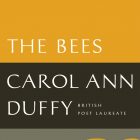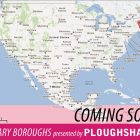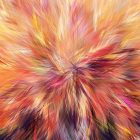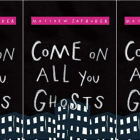“Free Ploughshares” Review: Spring 1999

Issue: Spring 1999
This is a review of a back issue of Ploughshares. The author won our “Free Ploughshares” contest that we hosted earlier this year and agreed to review his/her free issue. This post was written by Sarah Nance. Enjoy!
When I first moved to Los Angeles a year ago, I found myself struggling to make order out of my eclectic new surroundings. It was the first city I had lived in where it was commonplace to discover fine restaurants lodged in strip malls between laundromats and nail salons, and ’80s-style concrete office buildings crowding streets with modern California ranches. Every part of the city seemed a different distribution of the same formula: flamboyant wealth meets urban sprawl meets colorful dilapidation.
Mark Doty explores a similar kind of local structural chaos in his introduction to the Spring 1999 issue of Ploughshares. Describing his then home of Houston, Texas, Doty ponders over the excitement and strangeness found in the blending of cultures, people, and architecture which constituted the city in the late ’90s. Written from the perspective of a world perched on the edge of a new millennium, Doty seeks to address what kind of place the new century might be: “I began to understand that this is what the future looks like; if America has a ready example of life in the twenty-first century, this is probably it: artificial, polluted, a little dangerous, and completely confusing, yes—but also interestingly polyglot, open-ended, divergent, entirely unstuffy, and appealingly uncertain of itself.”
Doty’s Ploughshares selection finds itself predicting what would become our reality in the twenty-first century, an amalgamation of sights and sounds, desires and opinions, united only under Doty’s self-proclaimed banner that “more is more.” The stories and poems in this issue have not moved into the realm of the stripped-down and the experimental; they deal with the rich realities of daily life, portrayed through an abundance of language and image. Above all, there is a focus on inner life and the intersections between public and private selves.
Including work from poets such as Tony Hoagland, Lucille Clifton, Robert Pinsky, and Sharon Olds—as well as forceful and exciting work from many new writers—the collection taps into the cultural structures and social realities of our time. The poems and stories speak of the AIDS crisis in the ’90s, but also the devastation of illness, the grief of loss, and the tension of racial conflict. Should we accept cheerfully or not the fate that is hurled at us—the scattering of ashes, the invasion of privacy, the death of a brother, a lover, a friend, a child? What makes Doty’s selections so compelling, however, is the general refusal to stop at loss and sadness, at the coming-of-age or the ending of life. They are poems and stories that push through grief and destruction to uncover what might grow out of that, and what possibilities lie ahead.
It’s probably clear to most of us that our movement into the twenty-first century has not been as progressive as we might have hoped on the eve of the millennium. This collection foreshadows that shift in a way that is astoundingly forward-looking and yet still hopeful. The future belongs, as Doty says, to everything, and this collection draws attention to the nuanced details of the world we live in, a world where it may be possible, if one looks carefully, to find meaning anywhere.
Sarah Nance is a graduate student in the English Department at UCLA, where she studies contemporary poetry and drinks a lot of coffee. Her fiction has been published in the Crab Orchard Review.



